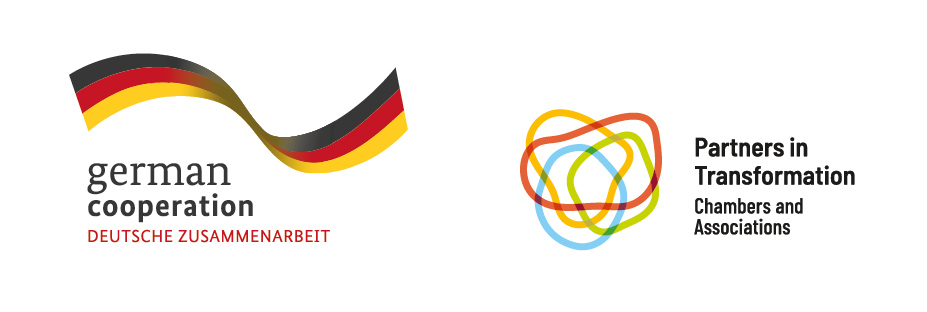MSME Mentorship Pilot 2022
Zambia
German Sparkassenstiftung Southern Africa (DSIK), Women's Entrepreneurship Access Center (WEAC), the AGS business accelerator programme and MentorMe Africa jointly aim at promoting small-scale entrepreneurship in Zambia. Together we want to help entrepreneurs to build or develop their businesses. For this purpose, we have developed a holistic mentorship programme that contributes to a sustainable ecosystem for MSMEs in Zambia.
MENTORpreneur Zambia:
The Mentorship Programme for resilient MSMEs
What do small entrepreneurs in Zambia need so that their business can survive even in times of crisis?
This was the question posed by Deutsche Sparkassenstiftung South Africa (DSIK) project "Promotion of small-scale Entrepreneurship in Southern Africa" at the beginning of 2021. One of the main findings of the subsequent survey was mentorship. A selected mentor supports the mentee in achieving his or her own intrinsic goal under the motto: "If my business flourishes, I too can grow".
According to research from the Bank of Zambia (BoZ) and the International Labour Organization (ILO), SMEs in Zambia account for 70% of the country’s GDP and 88% of the employment. However, there are numerous obstacles for MSMEs to consolidate and formalise their businesses and to grow. Intention is the key to drive and achieve a goal, which is broken down into small successes, during the Mentorship practice. Studies have shown that mentorship also strengthens the mental health and resilience of small entrepreneurs, especially where challenges are so existential that they demotivate and threaten mental health, as here in Zambia.
Evidence from literature:
- Women strive: Mentorship is especially effective for female entrepreneurs; it achieves significantly higher revenue increases of female owned business than common business training does (Campos et al. 2017) – the revenue increase was 35 percentage points higher in a randomized controlled trial in Togo (Campos et al. 2017).
- Improved debt repayment: Through mentorship, businesses are more likely to borrow and invest and less likely to default on loans, which is a perennial problem of the Zambian economy and needs to be tackled (Ayer 2021).
- Satisfaction gain: Nearly 500,000 young Zambians enter the job market each year with limited prospects of being hired. The gravitation of the youth towards entrepreneurial pursuits is therefore more a function of necessity rather than choice. Mentorship for SMEs helps to build the mind behind it to create not only sustainable but also fulfilling jobs (Baluku et al. 2020), since the channel of improving mental outcomes is self-efficacy.
- Mentorship boosts resilience and confidence: Being a psychology-based intervention, intangible outcomes of entrepreneurship including satisfaction of need for autonomy, work satisfaction and the intention to stay in self-employment contribute to start-ups being more resilient to shocks after having experienced MSME Mentorship (Baluku 2021; Baluku et al. 2020).
- Innovation brings new products and services: Even compared to participants of common business trainings, entrepreneurs under Mentorship add more products and services to their portfolio (Campos et al. 2017).
- Holistic Ecosystem: The success of Mentorhip is context dependent. However, it is proven that in a stimulating context, mentoring functions as booster for information sharing, support with creating networks, guidance and experience sharing (Baluku et al 2020).
- Well-prepared Mentors are essential: The expected effect of mentorship stands and falls with the quality of the mentor (Baluku et al. 2020).
For the above-mentioned reasons, Deutsche Sparkassenstiftung and its project in Zambia decided to develop a mentorship programme specifically tailored to Zambian needs. The programme was designed to include a mentor training, a mentorship handbook, a mentorship toolbox for mentors and a pilot project running in 2022.
References
Ayer, N. (2010). Learning from mentors: Perspectives of South African entrepreneurs (Doctoral dissertation, University of Pretoria).
Baluku M., Matagi L. & Otto K. (2020) Exploring the Link Between Mentoring and Intangible Outcomes of Entrepreneurship: The Mediating Role of Self-Efficacy and Moderating Effects of Gender. Front. Psychol. 11:1556. doi: 10.3389/fpsyg.2020.01556
Campos, F., Frese, M., Goldstein, M., Iacovone, L., Johnson, H. C., McKenzie, D., & Mensmann, M. (2017). Teaching personal initiative beats traditional training in boosting small business in West Africa. Science, 357(6357), 1287-1290.
Masten, A. S., & Tellegen, A. (2012). Resilience in developmental psychopathology: Contributions of the project competence longitudinal study. Development and psychopathology, 24(2), 345-361.
